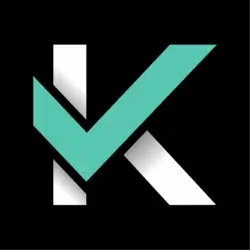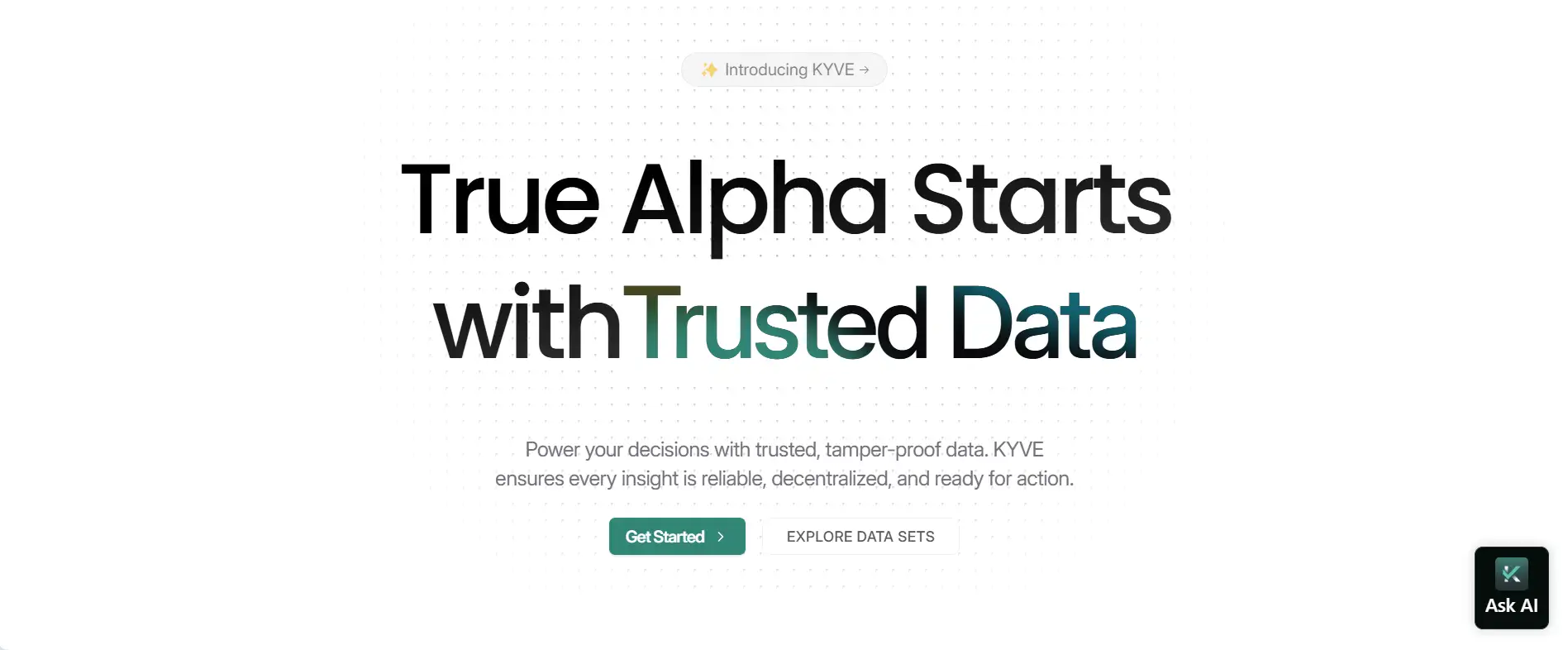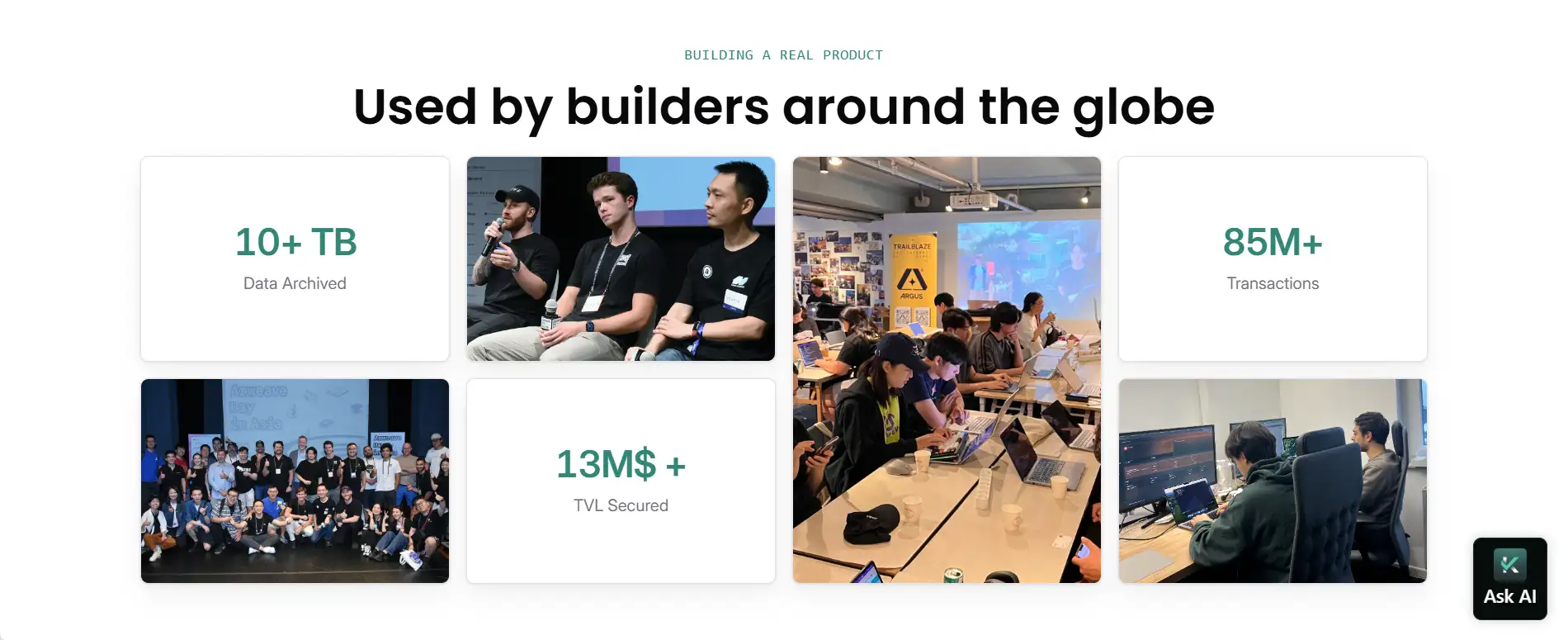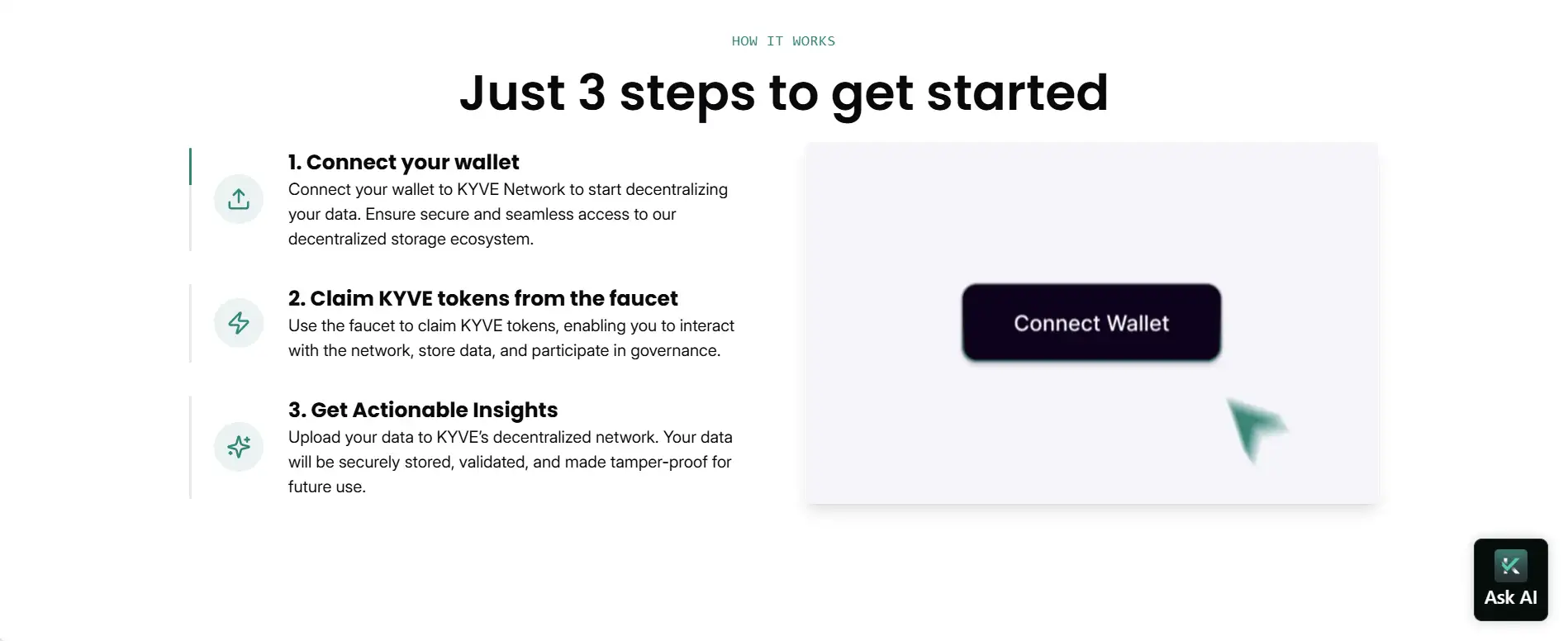About KYVE
KYVE is a decentralized data lake and infrastructure protocol designed to deliver trusted, tamper-proof, and accessible data to Web3 builders, validators, and ecosystems. It provides a modular solution for archiving, validating, and distributing accurate onchain data across various blockchains. KYVE ensures that every data point used in dApps, analytics, or governance decisions is verifiable and permanently stored.
With the rise of modular and scalable blockchains, the need for reliable historical data has become mission-critical. KYVE bridges that gap by enabling any chain or application to store and serve high-quality snapshots of blockchain state data. Whether you're an AI developer, a DeFi protocol, or a node operator, KYVE empowers you with decentralized data access you can trust.
KYVE Network launched as a protocol to decentralize the process of data storage, indexing, and validation for Web3. Over time, it evolved into a modular infrastructure solution that supports validators, dApp developers, protocol integrators, and blockchain foundations with easy-to-access, validated historical datasets. By solving the inefficiencies of fragmented or unverifiable data sources, KYVE is actively changing how Web3 data is handled across the ecosystem.
The architecture of KYVE is built on Cosmos SDK and integrates IBC, enabling interoperability and performance scaling across multiple chains. Through its unique dual-layer staking system — one for protocol-level data pools and one for chain consensus — KYVE ensures integrity at every step of the data flow. In version 1.5, the protocol introduced multi-coin funding, allowing data pools to be funded in tokens beyond $KYVE, enhancing collaboration between protocols.
Thanks to its decentralized node structure and automatic validation, KYVE can ingest massive data volumes — already exceeding 6TB archived from chains like Cosmos Hub, Cronos, and Celestia. Protocol funders, such as blockchain foundations, use KYVE to ensure the longevity and accuracy of their data. The Public Goods Funding initiative is further supporting projects like Andromeda and SOURCE to integrate via protocol-funded data pools.
In contrast to traditional data indexing services or block explorers, KYVE is protocol-native and designed for automated, permissionless access. While tools like The Graph offer querying capabilities, KYVE focuses on data archiving and integrity at the root level. Its ability to launch parallel data pools, enable validator incentives, and offer dynamic storage pricing makes it one of the most complete solutions for infrastructure-grade data.
With endorsements from ecosystems like NEAR, Cronos, and IOSG, KYVE is establishing itself as a critical piece of the Web3 data stack. It's built for scale, open to community governance, and optimized for both builders and validators seeking to make meaningful use of onchain data.
KYVE offers a wide array of features and benefits designed for data-driven builders and validators:
- Decentralized Data Pools: Upload, validate, and permanently store historical data sets via KYVE’s protocol-secured pools.
- Dual-Layer Staking: Stake $KYVE tokens on both chain consensus and protocol layers to secure the network and earn rewards.
- Multi-Coin Funding: Data pools can now be funded in multiple tokens, opening the door for protocol partners to contribute with their native assets.
- Data Rollups-as-a-Service (DRaaS): Create modular, scalable data rollups for your chain or app — KYVE handles the data; you build the future.
- Validator-Friendly Tooling: Access node optimization, pool delegation options, custom commission structures, and performance analytics.
- Parallel Data Pooling: Support for split data pools for large chains enables fast, distributed validation and storage.
- Upgradable Architecture: Cosmos v0.50 and IBC v8.3.1 integration ensures maximum compatibility and performance.
Getting started with KYVE is quick and straightforward. Here’s how to begin:
- Step 1 – Connect Your Wallet: Go to the KYVE web app and connect your wallet to begin interacting with the ecosystem.
- Step 2 – Claim KYVE Tokens: Use the faucet to claim free $KYVE tokens for testing and interaction on supported networks.
- Step 3 – Upload & Validate Data: Upload your dataset into a pool. KYVE will automatically validate and archive the data with tamper-proof guarantees.
- Step 4 – Delegate or Run a Validator: Stake $KYVE or become a validator in the protocol or chain layer to earn rewards and secure the network.
- Step 5 – Explore Integrations: Browse existing data pools, join the KYVE Public Goods Funding initiative, or build your own custom data rollup.
KYVE FAQ
Staking on the KYVE chain secures the underlying blockchain itself (built on Cosmos), while staking on the protocol layer secures individual data pools. Delegators can choose to support either the consensus or the protocol logic, and earn rewards accordingly. This dual-layer staking architecture gives the network higher security and specialization in both data validation and consensus.
KYVE uses a decentralized node network that validates, bundles, and stores data immutably through its consensus layer. Every data bundle is verified by validators before being archived, ensuring that only accurate and verifiable data makes it into long-term storage. This creates a tamper-proof record of historical blockchain data.
Multi-coin funding allows KYVE data pools to be financed not just with $KYVE, but also with tokens from partner chains. This improves protocol utility and enables other blockchains to fund their own data integrations using their native assets. It expands collaboration, unlocks new use cases, and boosts validator participation across ecosystems.
Yes, KYVE is chain-agnostic and designed to archive and validate data from any blockchain. With support already extended to networks like Cosmos, Cronos, and Celestia, future integrations are ongoing. Developers and protocol teams can fund and launch data pools for their specific chain using KYVE’s modular tooling and protocol incentives.
KYVE enables parallel data pool deployment using "End Keys," allowing massive chains like Solana to be split into block ranges. For example, one pool may archive blocks 1–1M, while another handles 1M–2M, and so on. This drastically reduces processing time and allows faster and more efficient data validation at scale.
You Might Also Like












